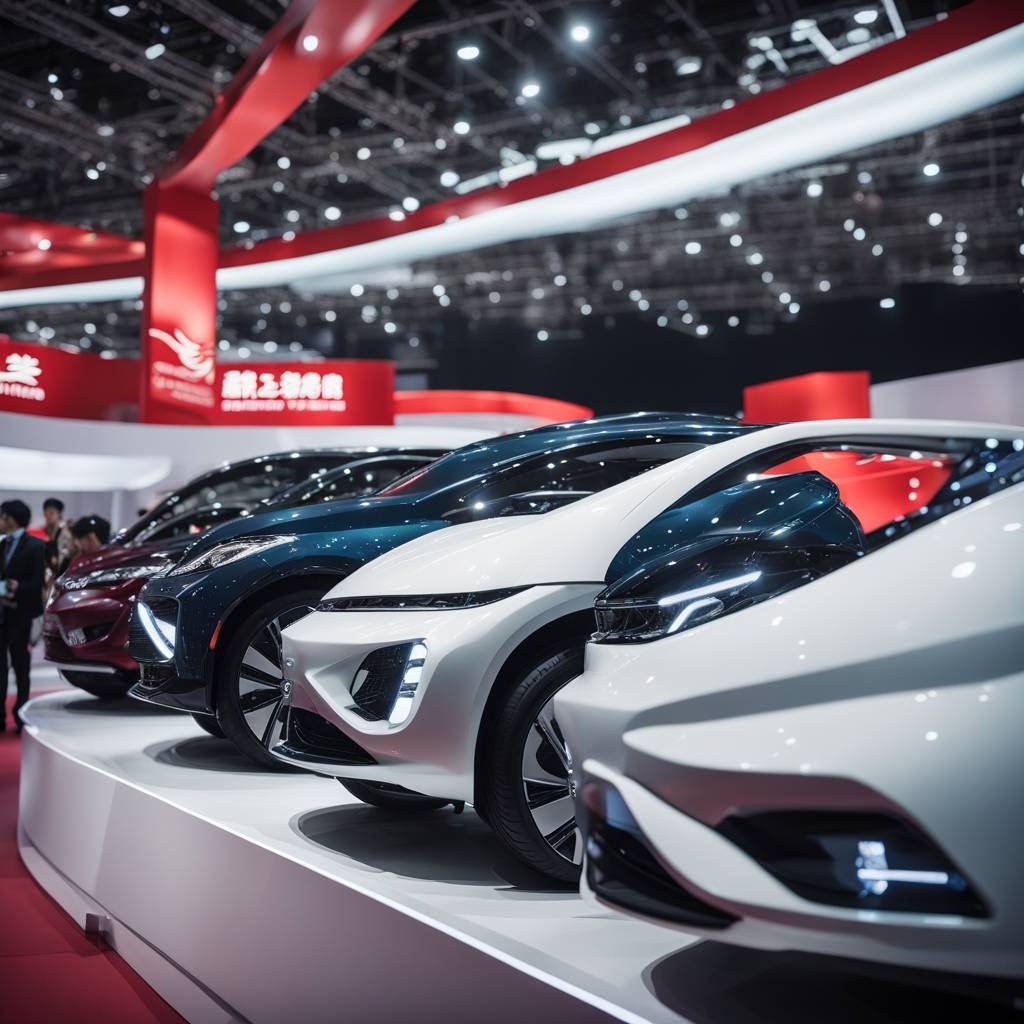Summary
– Chinese car giants engaged in cut-throat price war at Auto China show in Beijing
– Beijing Auto China show highlights intense battle to offer consumers cool accessories at low prices
– 129 EV brands in China with only 20 achieving domestic market share of one percent or more
– Traditional automakers like Volkswagen moving to prevent sales slide in China market
– Chinese EV companies expanding rapidly abroad, facing scrutiny and competition in Western markets.
Article
Chinese car giants are currently locked in a fierce price war as they gather in Beijing for the start of the Auto China show, the world’s biggest electric vehicle market. With the explosive growth of the EV sector in China, companies are competing to offer the most attractive features at the lowest prices. Elon Musk has praised Chinese EV makers as the most competitive in the world, as they have expanded their presence in markets across Europe and Southeast Asia.
At the Auto China show, a total of 129 EV brands in China will be participating, with 20 of them having achieved a domestic market share of at least one percent. Among the key players is BYD, which briefly surpassed Tesla to become the top EV seller in the world last year. While Tesla has reclaimed the title, BYD remains dominant in the Chinese market and is expected to unveil its first electric pickup, the BYD Shark, at the event. Other traditional automakers like Volkswagen are also present, aiming to stay competitive in China by investing in production and innovation hubs.
Nio, a Shanghai-based manufacturer of premium EVs, will showcase its 2024 lineup of eight models at the auto show in hopes of revitalizing its business. Xiaomi, a consumer tech giant, has entered the electric vehicle market with the launch of its first EV model, the SU7. The company’s CEO, Lei Jun, has expressed confidence in the success of the vehicle, which has seen higher than expected sales. As the competition intensifies, EV companies in China are slashing prices to attract consumers in a market where spending is slowing down.
While Chinese EV manufacturers continue to expand rapidly abroad, concerns have been raised in the West about the oversupply of cheap Chinese vehicles potentially outpricing local competitors. Beijing has denied allegations of unfair competition, attributing the success of its EV sector to innovation and advanced supply chains rather than subsidies. While retail subsidies from the central government were phased out in late 2022, Chinese EV firms continue to push into international markets, facing scrutiny from regulators in Europe and other regions.
The European Union launched an investigation into Chinese state subsidies for EV manufacturers, claiming that they provided an unfair advantage to Chinese companies in the local market. There have been reports of Chinese vehicles accumulating at European ports due to logistics challenges and slow consumer uptake. Despite these challenges, Chinese companies like BYD are expanding their presence in Europe, with plans to establish a future EV factory in Hungary. State-owned Chery has also signed a deal to produce electric vehicles in Spain, signaling the continued global expansion of Chinese EV manufacturers.
Read the full article here



